The man behind the legend of the Machine Gun Preacher
The legend of the Machine Gun Preacher was born the day Sam Childers stood over the dead body of a child in South Sudan and vowed to protect youth from the likes of cold rebel killer Joseph Kony.
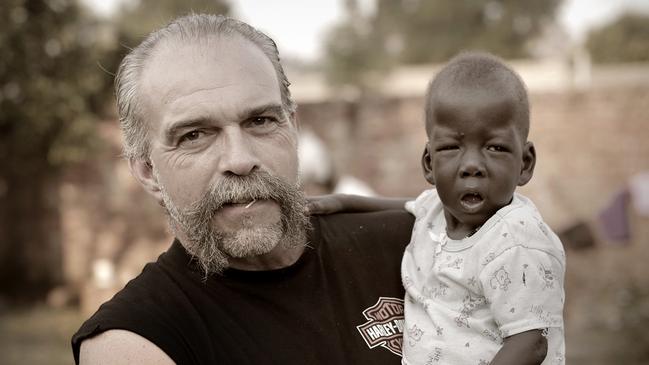
Gold Coast
Don't miss out on the headlines from Gold Coast. Followed categories will be added to My News.
The legend of the Machine Gun Preacher was born the day Sam Childers stood over the dead body of a child in South Sudan. From that moment he vowed to do anything to protect the youth of a country ravished by the likes of cold rebel killer Joseph Kony. However, as Chris McMahon reports, there is much more to the man behind the fable.
BORN into a Christian household, with a loving family, Sam Childers says he dreamt of being a preacher.
Before his life spiralled out of control, that is.
“When I was a kid, you know, I was born into the perfect family. Both Mum and Dad were Christian people, but I started making some bad choices when I was like 11-years-old,” Childers tells the Bulletin over the phone in South Sudan.
“If you were to ask me before all that, when I was five to 10-years-old, ‘Sam what are you going to be when you grow up?’, I would have said ‘I’ll be a preacher one day’.
“But I started making some bad choices. I started doing drugs at 11. By the time I was 15, I was a heroin addict, quit school, moved out of my house. Ended up selling drugs, not a little bit, like I tell people a lot,” says Childers, who grew up in Central City, Pennsylvania.
“I moved to Orlando, Florida, got into a really bad bar fight and almost got killed. At that time, I was in my 20s, I knew I had to make a change in my life.”
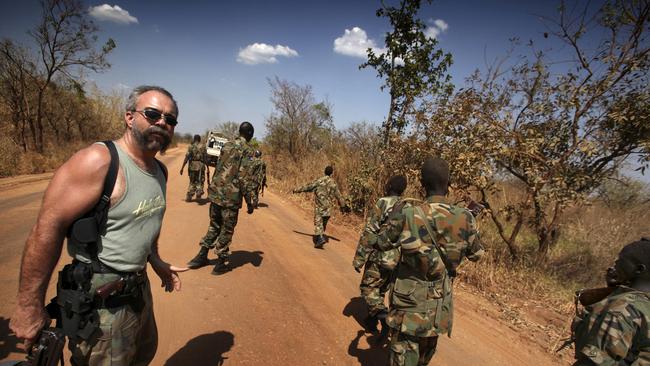
He moved a thousand miles away, leaving behind a life of drug dealing and outlaw motorcycle gangs.
“I moved back to my home town. When I got back there, my wife started going to church.
“It was two years after that, that I started going to church.
OTHER NEWS:
First look at Coast’s newest railway station
Inside millionaire’s row’s new mega mansion
‘Parts of city underwater’: Coast overdue for cyclone
Soon after, “God was really moving on me to go to Africa, so I started putting money into projects in Africa. I thought if I gave my money, I wouldn’t have to go.
“Between 1994 to 1998, I put a lot of money into Africa, building orphanages, food programs, just a lot of projects.”
Finally boarding that plane and heading to Africa, Childers says it set him on the path he is now on.
“In 1998, I went on my first trip into South Sudan and I ended up in the middle of the civil war.
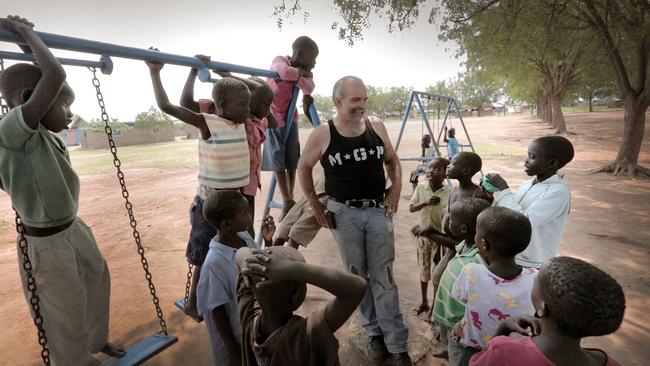
“I always tell people that God opens up doors for everyone and when we stand in that threshold, I believe the decisions we make are going to determine our destination in life.
“And I stood over a child in the middle of that civil war that was killed by a landmine. I said the words, I didn’t realise what I was saying at the time, ‘God, I’ll do whatever I have to do, to help these people’.
“Here I am, I’m still in Africa, I’ve been going for 20 years, I live in Africa full-time.”
AFRICA
IN the past 20 years Sam Childers’ life has been the stuff of Hollywood blockbusters. So much so, his story was turned into a biopic starring action superstar Gerard Butler, titled Machine Gun Preacher.
In 1998, Childers travelled across the country giving aid, before coming to the village of Nimule on the border of South Sudan and Uganda. Here he would build his first orphanage. In the same year he formed his charity, the Angels of East Africa.
At the time Joseph Kony and the soldiers of the Lord’s Resistance Army (LRA) were at the height of their power. They had kidnapped thousands of children, murdered countless people and were tearing the country apart.
Childers got to work on the orphanage by day. By night, he would clutch an AK47, prepared for anything.
AMAZING OFFER: GET A SAMSUNG GALAXY TAB A 8.0 WITH THIS BULLETIN SUBSCRIPTION (T&Cs apply)
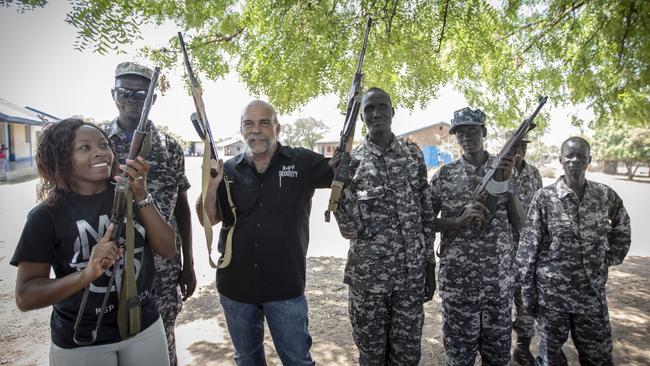
Once the orphanage was completed, he began to lead armed missions to rescue child soldiers from the LRA. Soon enough his legend grew, the name Machine Gun Preacher born.
Childers does not like to talk about war; the memories haunt the man.
“If I’m going to talk about anything, I’m going to talk about the good things. I don’t like to talk about the children I’ve lost, I like to talk about the children we’ve rescued.
“I am one of the directors of a security company in East Africa, that is what I do for a living. Now as long as there is children being hurt anywhere in the world, I’m going to do my best to rescue them.
“I try not to be a negative person, I don’t talk much about war. If you watch any war movies on TV, you’ll get a little glimpse of what war is all about. I’d rather talk about the victories.”
Childers said Kony is still a concern for him.
“Joseph Kony is supposedly in the Congo. He is still doing his bad deeds, but not like he was years ago. I say if he kidnaps one child or kills one child, it’s still a serious problem.
“The one that financed Joseph Kony was President al-Bashir of Northern Sudan. His regime has fallen, he is in prison.
“I believe Kony’s days are numbered in the Congo.”
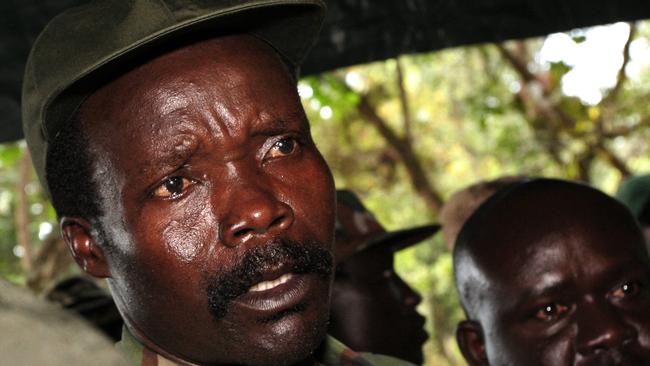
Childers says the instability in East Africa is still an issue, where war wreaks havoc.
“Uganda, I call it the land of milk and honey, there’s a lot of opportunity for people there. It has been a safe country for over a decade now, there’s been no problems with Kony.
“South Sudan is another issue, it’s a very unstable government. I believe it will stay that way, until something or someone comes into office in Northern Sudan. The economy of South Sudan is based off what’s going in Northern Sudan, because they are really functioning off the oil money that is paid through the north.
“South Sudan is still in the middle of a civil war. There was a peace treaty signed, but even though it was signed and a cease fire was signed, there is still rebel activity going on.
“People are still being killed there, it’s just a very unstable time right now. I believe we have to keep South Sudan in our prayers. There will come a day of peace there, but it’s not right now and I don’t believe it is in the near future.”
VISION FOR THE FUTURE
WHEN he opened his first orphanage, Childers says he knew it wouldn’t be the last and it would not stop there. Now with five in operation across Uganga, Ethiopia and South Sudan, his focus has shifted to how they help the future generations, to end the cycle.
AMAZING OFFER: GET A SAMSUNG GALAXY TAB A 8.0 WITH THIS BULLETIN SUBSCRIPTION (T&Cs apply)
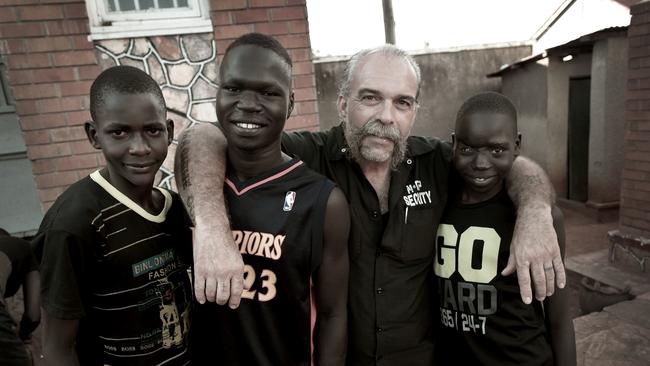
“I’ve found out there’s more to it than just building an orphanage. The average child in an orphanage in a third-world country has to leave when they’re 15-years-old.
“Not ours. They can stay to 18 and we give you the choice, if you’re smart in your classes, we'll send you to university. If you don’t want to go to school, we’ll put you on one of the training projects we have.
“Most kids in a third-world country, when they leave the orphanage at 15-years-old, 70 per cent of kids end up in prostitution, boys and girls alike.”
Childers says he did not want to put all the effort in to save children, only for them to end up in a cycle of abuse or death.
“God said I had to do more, we have right now, we have restaurants, hotels, a commercial farm, many projects where we’re training people in farming, ranching, irrigation, welding, mechanics. We’ve built schools, we have many jobs, teaching young people from 16-years-old to 26-years-old, a skill and a trade.
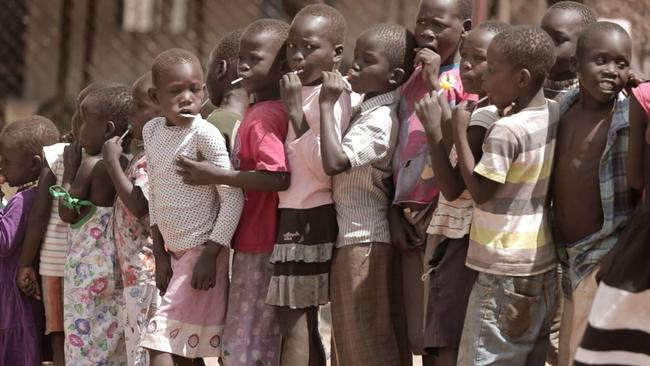
“Right now, we’re working about 500 people, they’re all on a payroll, they all make the going rate.
“We have five orphanages, we’ve drilled more than four dozen wells, over the years. I always tell people if you want to save thousands of lives, you drill one well.
“We’ve repaired, probably, close to three dozen wells. We’ve built seven schools over the years and we’re building number eight right now.
“Our feeding program is about 13,000 meals a day, that’s what we feed right now.”
Despite that he says he is not done yet.
“Our goal right now is I want to be self-sufficient over the next two to three years, we want to be able to make enough money through the businesses that we have in Africa to support the orphanages.
“I’m not done with five orphanages. I’d love to see 10 orphanages, I’d love to feed 25,000 meals a day.
“I think so many people, when they start to get old, they think they can hold on to everything. They don’t plan for the aftermath, for the last few years and what I’m doing now. Until God takes me out of this place, I’m going to keep setting our organisation up so that it will go on for many decades after I’m gone.”
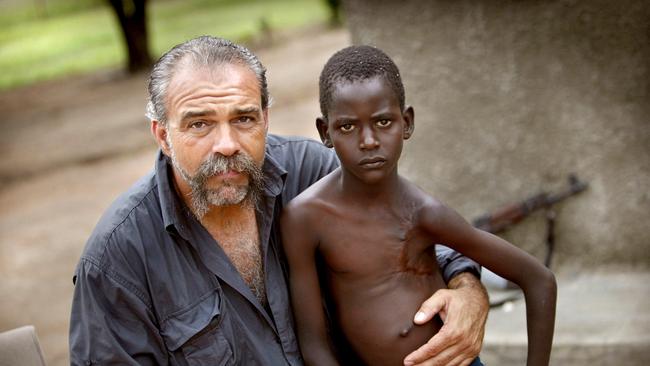
THE TOUR
Childers will be on the Gold Coast on September 20, talking at the Transformation City Church and says it’s an opportunity for him to inspire people to do better in their community. He says as a former outlaw motorcycle gang member, he knew where people in those gangs were at, but says he would challenge them to do better.
“A lot of people think it’s (the tour) all about Africa, but if I come into your town, it’s about inspiring you, to motivate you, to do something in your own city, in your own community that you lived in.
“I carry a message of hope.
“I’m a biker myself, a former 1 per center. I got my first motorcycle at seven. I’m 57 now, I’ve been riding for 50 years. I challenge people to look at my life and look at what God did for me. Think of what he could do in your life.”
Go to https://www.mgpworldtour.com/ to find out more.
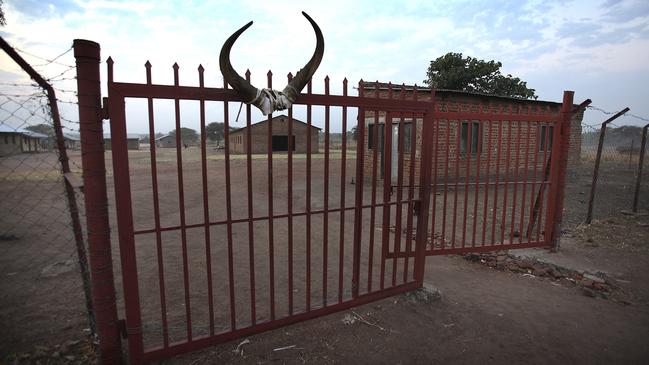
THE ORPHANAGES: BUILDING HOPE AND A FUTURE
Nimule, South South – set up in 2000.
Kampala, Uganda – set up in 2006.
Gulu, Northern Uganda – set up in 2000.
Two in Adima (used to be called Nazret), Ethiopia — set up 2012.
Childers has about 380 kids in his care in the orphanages. That does not include the 20 older kids in the training programs and 28 at university or trade school. The age of latter is 18-26.
Originally published as The man behind the legend of the Machine Gun Preacher


